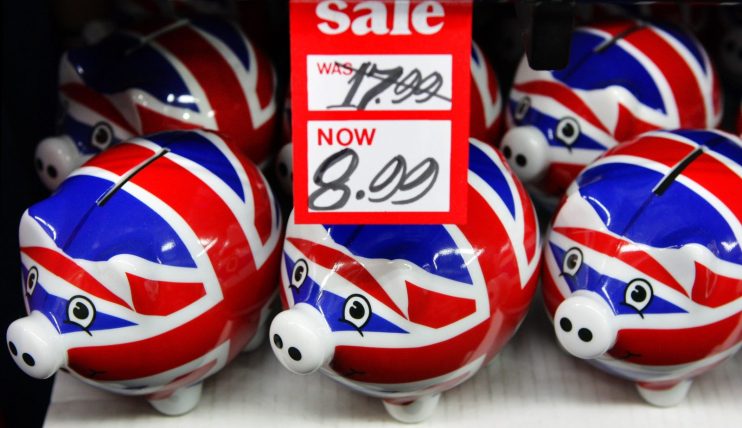Threat of stagflation returns for first time since 1970s as UK enters early stage of drawn-out recession

The UK is in the early stages of a drawn out recession that will tip millions of households into financial crisis, reveals fresh forecasts published today.
An inflation surge driven by an unprecedented rise in energy bills will steer the economy into recession this quarter and keep it there until early months of next year, according to the National Institute of Economic and Social Research (NIESR), Britain’s oldest independent research institute.
The economy will shrink 0.1 per cent this quarter and 0.5 per cent in the final quarter of this year and the first quarter of next year.
Brits have lost around £110bn in real disposable income since the financial crisis, dealing a huge blow to their capacity to weather the present cost of living crunch.
The threat of stagflation, a nightmare of economists, has returned for the first time since the 1970s.
Professor Stephen Millard, deputy director for macroeconomics at the NIESR, said: “The UK economy is heading into a period of stagflation with high inflation and a recession hitting the economy simultaneously.”
Stagflation is where an economy sees slow growth, high unemployment and rising prices.
The poorest households will be forced to raid all their savings to pay for basic necessities, such as food and energy, doubling in the number of families with no financial cushion to nearly 5.5m by April 2024.
Some 1.2m households will be unable to buy food and cover energy bills with their income, driving them toward taking on high-risk debt.
Average annual energy bills will climb to a peak of over £3,700 next spring, according to research firm Cornwall Insights.
The NIESR called on the winner of the Tory leadership race to reinstate the £25 universal credit uplift installed during the Covid-19 crisis to protect low income Brits.
The £400 energy bill grant should climb to £600, the think tank recommended.
Neither Rishi Sunak or Liz Truss have committed to raising benefit payments, but have promised to cut taxes, albeit over different time frames.
Both Truss and Sunak’s campaigns did not respond in time to a request for comment.
Inflation will climb to a peak of around 11 per cent later this year and remain above the Bank of England’s two per cent target through 2023. It is already running at a 40-year high of 9.4 per cent.
In response, interest rates will need to climb to three per cent, the NIESR said, which would be the highest levels since November 2008.
Governor Andrew Bailey and the rest of the monetary policy committee (MPC) are expected to hike borrowing costs 50 basis points tomorrow, which would be the biggest move in the Bank’s 25 years of independence.
The Bank risks losing its credibility among households and investors if it opts for a smaller rate rise, Millard said.
Bailey said at the annual Mansion House bankers’ dinner last month a 50 basis point rise is “on the table”.
“It’s now up to the MPC to make sure inflation does come down next year and the new Chancellor to support those households most affected by the recession and cost-of-living squeeze,” Millard added.
Inflation across the group of rich countries in the Organisation for Economic Co-operation and Development will average 9.7 per cent this year, causing global GDP to grow 0.4 percentage points slower than the NIESR predicted in their previous projections.